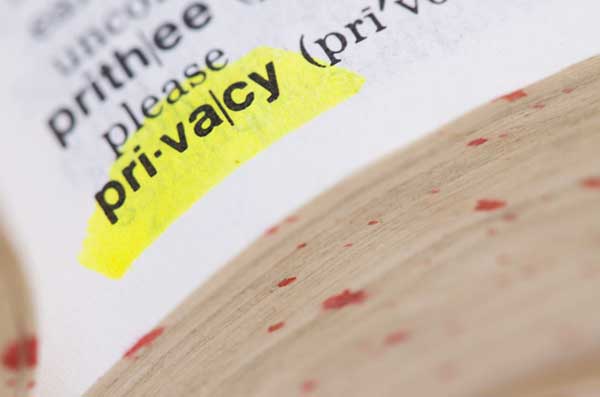
Photo from Perspecsys Photos on Flickr.
By now you’ve probably heard the verdict in the Bollea v. Gawker case, the formal name of the lawsuit that Hulk Hogan (Terry Bollea being his legal name) filed against the online news site Gawker. The jury awarded the Hulkster with $140 million in damages for invasion of privacy after Gawker posted a one-minute segment of a sex tape featuring the wrestler with the wife of his best friend Bubba the Love Sponge. If you got a chance to watch the trial, or a least read about what was happening, you’d know that it was very entertaining, particularly for a media/info/tech law nerd such as myself. You should also know that Hulk has unfinished business with Gawker, having recently (as of May 3, 2016) filed another lawsuit against the media organization and others claiming emotional distress.
Bollea v. Gawker, as humorous as it was, is perhaps not as important as what it represents. At issue, and heavily discussed before, during and after the case, is personal privacy, particularly as it deals with media/technology. Of particular interest to me is the phenomenon of doxxing. Put simply, doxxing is the aggregation and public dumping of someone else’s personal information online. Often times used as a punishment for trolls, doxxing has become a part of the national and international consciousness since the mainstream media reported on the doxxings that happened during #Gamergate, which led to death threats, the cancellation of speaking engagements, and significant animus on both sides of that debate. Of course, doxxings had happened before #GG, and many would point to the affiliates of Anonymous or denizens of 4chan when attempting to identify who would engage in this behavior.
Yet, people have been telling other people’s “business” since time immemorial. Rumors of pregnancy, illegitimacy, cheating, who had what disease, and all manner of gossip (both true and false) have long traveled through neighborhood and family storytelling networks. Technology only enhances these networks, allowing information to travel at the speed of light, and widening what’s considered the neighborhood. Technology most assuredly assists with doxxing in both the collection and distribution of personal information.
In the US, when attempting to sue someone for spreading your personal information, in general, you have four privacy torts, or personal injuries—not all of which are recognized by all states. The kind of invasion of privacy most closely aligned with doxxing is public disclosure of private facts, defined as the publication of information that is highly offensive to a reasonable person and not of legitimate public concern. It is, for example, highly offensive to a reasonable person to publish the photograph of a woman whose skirt has blown up above her head in public, or to report that someone suffered from a rare disease. At the same time it is not highly offensive to publish a picture of a young couple kissing at a restaurant, or of a young woman exposing her breasts at a rock concert.
The courts have broadly recognized a newsworthiness defense to public disclosure, for the most part basing newsworthiness upon a community standard of public interest, and, quite frankly, public behavior. This public interest/newsworthiness qualifier was a significant part of the discussion in the Hulk Hogan case, as commenters debated the effects a ruling in favor of either side would have for understanding what kind of information the First Amendment would protect.
But I think there’s a more significant question related to doxxing: if doxxing is now commonplace, is it no longer highly offensive to a reasonable person? And if it’s no longer highly offensive, how can anyone hope to get some kind of remedy from the courts? So commonplace is doxxing now that a Google search of the phrase “I got doxxed” or “I got doxed” returns thousands of results. It’s interesting to think about what the courts, who will most assuredly face a doxxing case in the near future, will make of the commonality of doxxing. This is not to state just because something is common, that it’s not wrong. It does, however, indicate that the level of offensiveness necessary for someone to recover is now much higher than it once was. At the same time, if the Hogan case indicates anything, it’s that just because someone has a “public” life—if they are a celebrity like Hulk—that does not make every aspect of their life free for disclosure. Perhaps, then, the courts could conclude that even as prevalent as doxxing now is, it’s still highly offensive.
References
William J. Prosser 1960 “Privacy,” 48 University of California Law Review 383.
Daniel J. Solve 2008 Understanding Privacy. Harvard University Press
Dendy, G. 1996. Newsworthiness Defense to the Public Disclosure Tort, 85 Kentucky Law Journal 147.
Honan, Mat 2014 “What is doxing?” Wired, Mar. 6, 2014, available at: http://www.wired.com/2014/03/doxing/

3 Trackbacks